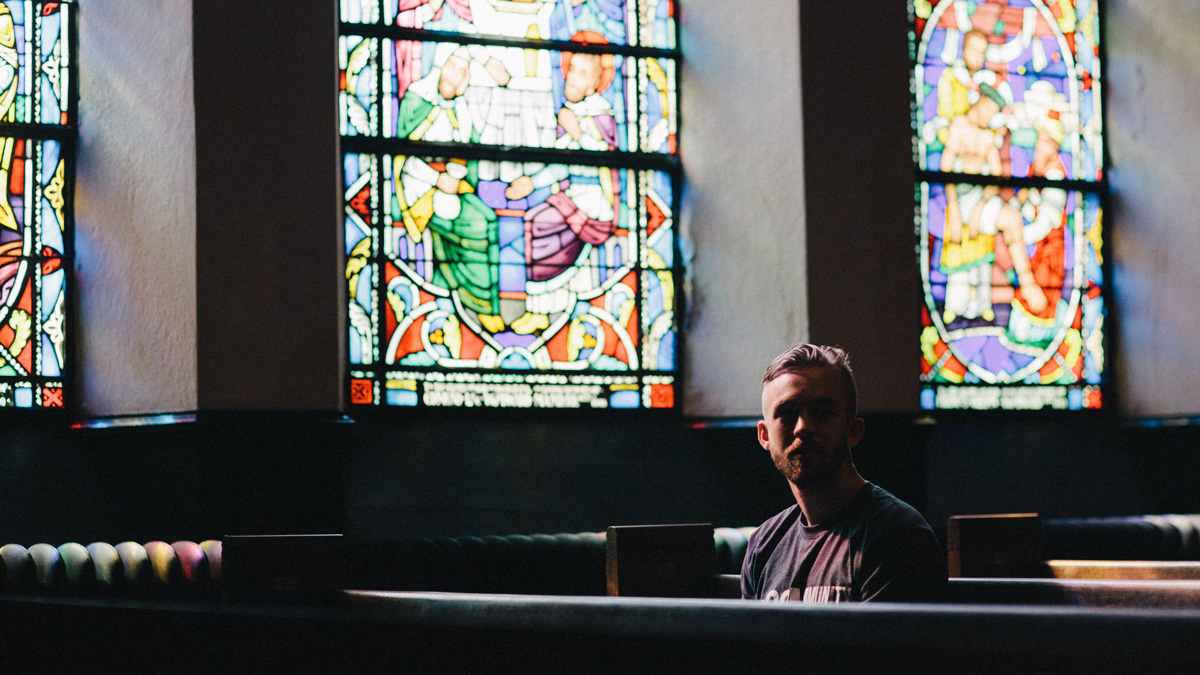Should a Christian Even Go to Church at All?
This might sound like an odd question, particularly from a pastor who’s trying to grow a new church, but it was one I was asked: Where does a Christian go to worship and serve God in Starnberg, or even Munich? It’s not easy to find a church that fits with what we were raised with, our style, or our schedule.
This is true.
If we were to choose a church of a mainline denomination, we might not understand the language or we could find a pastor who doesn’t agree that Jesus is the only Savior and way to God—rather just one way among others. But if Jesus is not the way, then there must be other ways (more fun ways), and, if so, we don’t really need Jesus anyway. So what would be the use of the church and what would be its message?
If we chose to attend a more “evangelical” or “born-again” Bible church, we could find it packed with people who, though very Bible-oriented, are legalistic and pious, highly self-righteous, judgmental, sour-faced, “we are the chosen” types. You’ve seen them, they’re suspicious of all strangers not already part of the club, and are divided among themselves with all sorts of factions, hierarchies, and long-standing, bitter disputes.
Or, you may have to hide your beer under the sink when the pastor or leaders visit. Maybe even face the “you’re not quite Christian enough” complaint. Whatever that means.
I’ve been part of both types of churches. If I were not a pastor of a wonderful church family, I don’t know where I would go. It’s really tempting to plan a nice getaway to Italy (our family’s favorite go-to place) or just Coffee Fellows (another family favorite!), have a delicious cup of cappuccino, and gaze at Starnberger See. That could be much more profitable than simply going to a place where a group of strangers meet every Sunday and where I might even get totally ignored or insulted.
When our family visited a mega church in Northern California known for its biblical, “Christ-centered” life and big-name, grace-speaking pastor, we were never greeted or welcomed by anyone. Instead, we were told three times in thirty minutes that we were in someone’s way. We couldn’t help but laugh at the irony of it all.
While at another, smaller church, I deliberately placed myself in the middle of the hallway (in everyone’s way), or next to a clique of merry coffee-drinkers, just to see if anyone would acknowledge my presence. Nope. I felt like the invisible man.
Am I alone in this?
And if, on top of all that, you attend a worship service to hear some really bad, sad music that the worship leader wrote, and then listen to another sermon on how to have a more fulfilling, middle class suburban life, or a motivational message on how to be rich and successful, you have to ask, “Why did I give up my day and do this to myself?”
Obviously I’m not talking about all churches; I know that some do inspire and motivate. I also understand that we attend church to worship God, not primarily to enjoy the sermon, music, and fellowship. But we do have the right to ask whether or not something is taking place in our churches that isn’t happening in the local pub or theater, where people are preferring to go. We, above everyone else, should be the sworn enemies of monotony and boredom. If it’s just the same ol’ same ol’ (or even the new and vacuous), then is it really the place where the Christian needs to be?
Yes.
Because it’s still true that coals stay hot together and die out alone. I still believe Christians are supposed to gather with others of like faith and worship God together. When we don’t, it’s an involuntary acceptance of the cultural thought and values that surround us—we tend to love the one we’re with.
So can’t we come up with some fresh ideas that seem closer to what the New Testament describes, where people actually love one another unconditionally and can’t wait to be together again? Can’t we find ways of sacrificially serving the world that absolutely astonishes the unbeliever?
Yes.
Let’s strive to make it that way. Until we do, the church is the place where we come together to worship, encourage each other, and seek God’s blessings. There is a power that God releases through his body to be a blessing to each other, our neighbors, and even our communities. It’s where dreams come true, healing takes place, prayers are answered, and families and relationships reconciled—where stories of faith and rescues encourage and propel us.
Think about it: In Jesus Christ, God has decreed the end of death and meaningless existence, revealed the way to fruitful and abundant life, given us the recipe for healthy societies and the medicine for the world’s ills, as well as the only solid hope for the future. Where else can you find that kind of news? If that doesn’t create contagious joy and generate new ideas for positive action and a desire to glorify him, what does? Just the very nature of the Gospel message we hear should fill our minds with a few questions:
- How do my priorities affect those around me?
- Does our fellowship exhibit our hope to the world or obscure it beyond recognition?
- Am I responding to God’s abundant grace in my life by seeking to grow more in my faith walk and to serve him?
Back to the question, what I did add to my answer was that more than anywhere else, in trying to adjust to living in a foreign place, it’s easier to say, “This is just temporary, when we get back ‘home,’ we’ll get back to regular church.”
Sometimes, we do.
But, more often than not, like any good habit, once we get out of it, or it’s too late for our children to grow into it, it is much easier to walk away from the exercise of it all. The price of the journey back home is often far more gut-wrenching, painful, and difficult.
Let me know your thoughts.
Our family of faith is in my daily prayers as it strives to worship and honor God and exist for those on the inside and outside of it. Looking forward to being with you on Sunday.
Photo via ShareFaith







